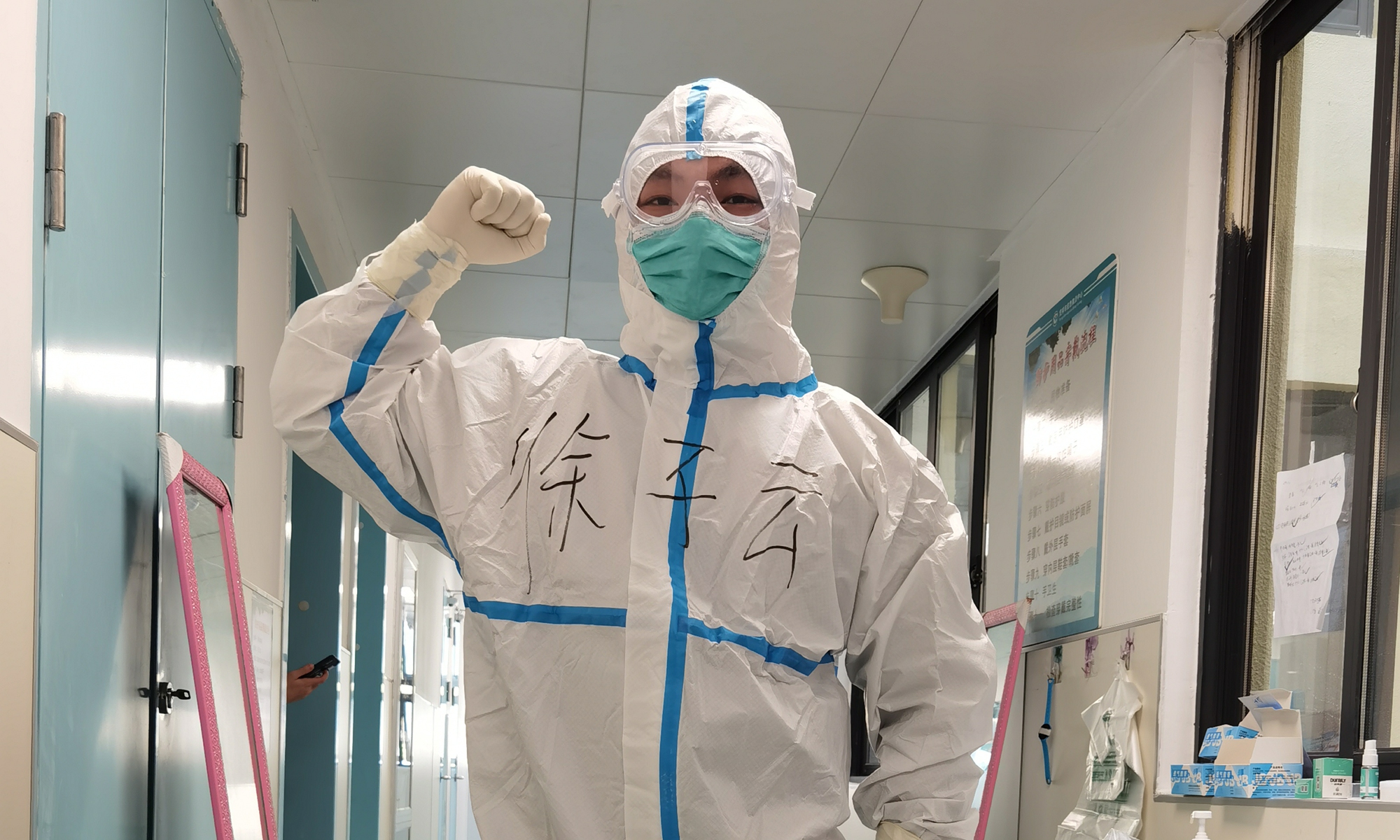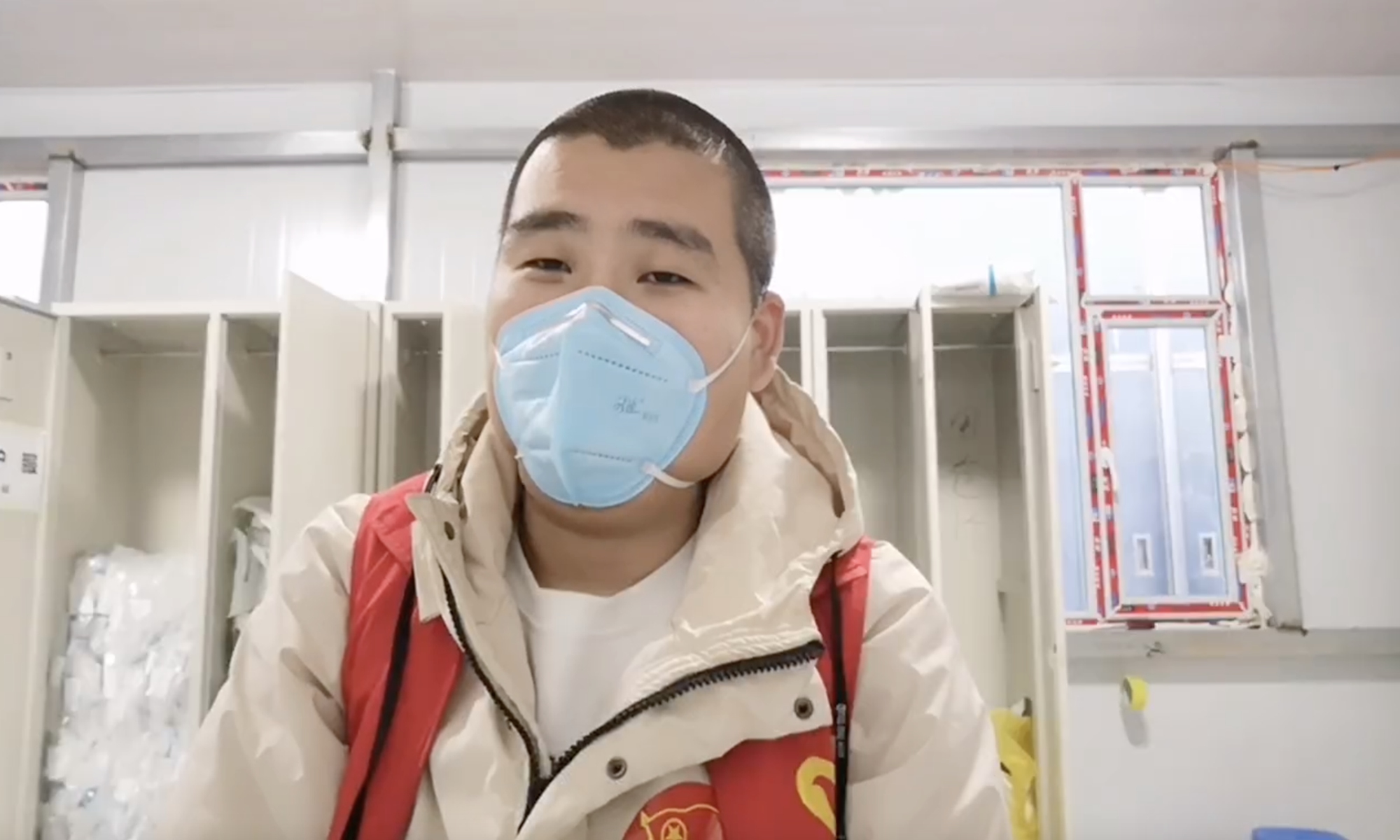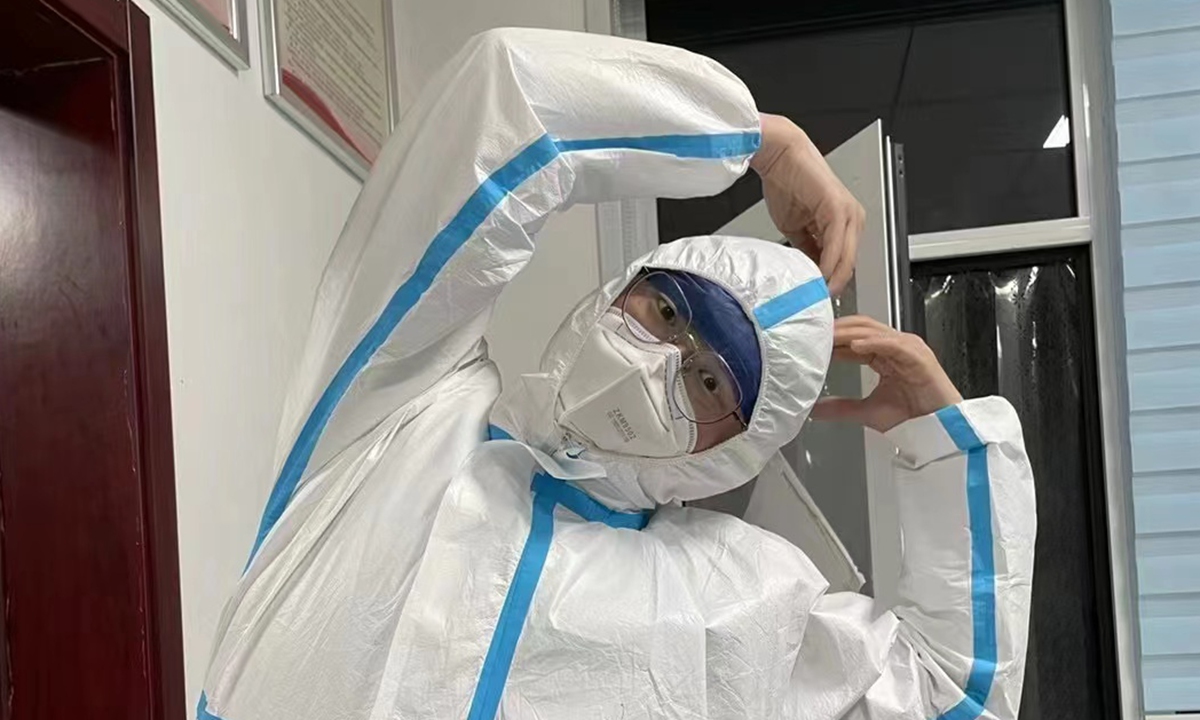Editor's Note:
This year marks the 100th anniversary of the founding of the Communist Youth League of China (CYLC) and the Chinese youth today, mostly comprising of Gen-Z, are also making great contributions and sacrifices toward overcoming the serious challenge of their time - the COVID-19 epidemic. Since the coronavirus disease hit Wuhan in 2020, numerous Chinese young have proven themselves as fully capable and qualified of playing a key role in safeguarding the country and its people from the epidemic. These are just some of the stories received recounting how China's youth are so valiantly fighting against the epidemic.

Xu Ziyun
China today, just like many other countries around the globe, is still making great efforts in preventing and curbing the COVID-19 epidemic within its borders to maintain a safe and stable environment for economic development and to see the lives of everyday Chinese people return to normal. In this arduous campaign, the country's gen-Z population, or those born between the late 1990s and early 2000s, have been playing an increasingly significant role.
"During the SARS outbreak in 2003, we were the children that needed to be protected, and now, in the fight against COVID-19, we're the ones stepping up to the plate to help protect others," said Xu Ziyun, a young doctor from Guangxi University of Chinese Medicine. Xu was dispatched to Baise, a city along China's border with Vietnam in South China's Guangxi Zhuang Autonomous Region, during what was identified as an epidemic outbreak needing urgent attention between February and April 19.
Echoing Xu's statement, according to official data, among the more than 42,000 medics dispatched from across the country to aid Hubei in fighting COVID-19 in early 2020, more than 12,000 were under the age of 30.
Some even lost their lives to the COVID-19 fight early on, and among such valiant warriors are two medical workers, Xia Sisi and Peng Yinhua, both born in 1990 and were part of the those fighting the epidemic prevention frontline.
Medical workers, including doctors and nurses, continue to play a pivotal role in the epidemic prevention fight, constantly putting their own lives at risk for the sake of public health, but such valiant efforts along with coordinated contributions by individuals from various sectors have meant China's success in minimizing casualties and in containing the virus.
Massive makeshift hospitals meant to accommodate patients in need of quarantine facilities have been constructed rapidly, without compromising on construction quality or integrity, while massive populations under lockdown in various cities in need of volunteers, deliverymen, and police officers to ensure the smooth delivery of essential goods and services have seen China's youth take up these key roles.
Full speed, full passion
Since the emergence of the Omicron variant, many regions across China have seen an uptick in infections, the most serious having been witnessed in Shanghai. The megacity of 25 million currently still faces an uphill battle in curbing infections.
Part of the large contingency sent to help the megacity cope with the recent Omicron variant infection surge has been young volunteers meant to assist in the construction of large scale quarantine facilities and makeshift hospitals.

Yang Di, 29, a manager at a subsidiary under the China Construction Eighth Engineering Division, said that at 6:30 am on April 6, his company put out a notice calling for volunteers to help the construction of a makeshift hospital in Shanghai. "I did not think twice about it. I just replied 'I'm in'," he said.
Yang participated in the conversion of Shanghai's National Exhibition and Convention Center (NECC) into a makeshift hospital, which, according to the Xinhua News Agency, has a capacity of 50,000 beds. Many of his colleagues had begun volunteering as early as 3am and some just before dawn on April 6.
Upon completion, it is expected to act as the biggest such hospital for those who test positive for COVID-19 in the metropolis.
Yang and his colleagues arrived in Shanghai on April 7, and they, together with other workers, set out on the task assigned to them at hand, completing it by April 9, handed the completed project over to Shanghai's local government, with the entire process lasting only two days. On April 14, the first batch of 322 patients left the NECC makeshift hospital after testing negative, bringing their observation period at the facility to an end.
Optimism and wisdom
Ensuring the seamless supply of daily commodities and essential services in a city under lockdown is an almost impossible task, which, in the case of Shanghai, needed cooperation efforts between the local government and Shanghai's residents.
Chen Bokun, a young Shanghai resident and vlogger on the Chinese YouTube-like video sharing social media platform BiliBili.com, told the Global Times that he has learnt that many people around him faced challenges in securing fresh vegetables so he decided to volunteer as a deliveryman with an aim to solve this problem.
At the beginning, Chen would use his motorbike to deliver orders placed on food delivery apps, but he soon found that with an exponential number of orders placed, he would have to use his car to make deliveries. He also uses his car for pet transportation, and has transformed his studio space into a makeshift warehouse to store the fruits and vegetables meant for delivery. He has also asked his friends to join him in acting as delivery drivers while others handle logistics.
"In order to purchase materials in advance to meet the demand from the residents, I borrowed 100,000 yuan (about $15,132) from my father, but to be honest, I found the job is not easy at all," Chen said, noting that as of April 23, he had already helped more than 600 people, and called this "the objective of this project."
He said there are special cases that stand out among the people he helped including a "blind person who paid me in cash," a rarity in today's China which has seen a majority of its population shift to cashless online payment systems, and "a woman that ordered groceries for her husband who was working in a factory that produces medical products for more than 20 days."
Volunteers have also played a pivotal role in current epidemic prevention efforts, such as in organizing mass testing and in helping grassroot leaders to better serve their communities by providing whatever form of assistance is needed. Wang Xiao, another young Shanghai resident, shared his and his wife's special experiences as volunteers during the current citywide lockdown.
"My wife started an online marketplace through a WeChat group. She made an online Excel chart, and everybody would fill in whatever they had and needed. Some people would even announce that 'if you guys can get me some flour, then I will make some cookies or dumplings and share them with you'."
In his wife's WeChat group, "People don't just trade in supplies. Some people also trade in their skills," he said.
Patriotism and faith
Analysts said that gen-Z in China exhibits characteristics including confidence, optimism, open-mindedness, and an innovative mindset, since they have witnessed the rapid development of the country and are able to use advanced technologies to solve problems, and don't believe there is anything that cannot be done.
More importantly, they are probably the most patriotic generation with the strongest sense of confidence in their nation that the country has seen in a century, and enjoy being of service to their fellow countrymen and are constantly eager to prove themselves in the eyes of their predecessors, experts said.
China, on April 21, released its first nationwide official document focusing on its youth in the new era, titled "The Youth of China in the New Era." The whitepaper said that young Chinese people in the new era are confident, aspirational, and responsible. They wholeheartedly support the leadership of the Communist Party of China (CPC). With a global vision, they stand at the forefront of the times bursting with commitment: Pursuing lofty ideals with a firm belief in Marxism, communism, and socialism with Chinese characteristics; full of patriotism, sharing weal and woe with the country and the people.
Apart from efforts made in Shanghai, China has already successfully implemented epidemic control measures from Northeast China's Jilin Province to the South China's Guangxi, where the youth have made remarkable contributions, and have shown that they have inherited fearless and bravery from their predecessors, and also have a unique sense of faith and confidence.
Doctor Xu from Guangxi told the Global Times that he's the youngest member in his team and that his elderly colleagues, in the beginning, would not allow him to work the nightshift but he rejected their attempts at trying to take care of him. He said "When we went to the frontline of the anti-epidemic fight, there was no difference. We are all fighters."

Li Luyao
Li Luyao, a volunteer who worked at a makeshift hospital in Jilin, shared similar experiences, but the circumstances were a bit more challenging. "Due to a staff shortage, we first needed to work for 12 hours a day and cover three shifts. It was tough indeed. But we had passion as people should accomplish something in their lives. People in Jilin City fought hard for their hometown, and finally achieved victory."

Chen Lei
Chen Lei, a grassroots public servant and epidemiological worker in Langfang, Hebei Province, told the Global Times that, "Aside from working tirelessly, we would like to show more positive energy. Such optimism not only comes from the bravery displayed by the younger generation, but more from the confidence shown in the Party and country."
"Because we firmly believe that the goal of the dynamic zero-COVID strategy will be achieved, we also believe that our lives will go back to normal, so we can return to enjoying time with our pets, return to our favorite pastimes, and even go shopping," Chen noted.
Chinese President Xi Jinping said at a key meeting with outstanding youth representatives from all walks of life in 2013 that "Both history and reality tell us that when the younger generation has ideals and a sense of responsibility, the country will have a future, the nation will have hope, and there will be a steady stream of powerful forces to achieve our development goals."
In a visit to Renmin University of China on April 25, about a week ahead of the 100th anniversary of the founding of the CYLC and Youth Day, which falls on May 4 annually, Xi called on all young people to bear in mind the Party's instructions, commit themselves to the rejuvenation of the Chinese nation, and live up to the prime of their lives, to their mission of the times and to the expectations of the people. The Chinese president encouraged young people to run with all their might on the track of youth, and win the best results the youth today are supposed to get.
Now, youth work is valued even more highly by the top national leader of China as the country moves forward into its second centenary goals, said analysts, noting that the fight against COVID-19 is just a chapter in the "long march" of China's gen-Z.


